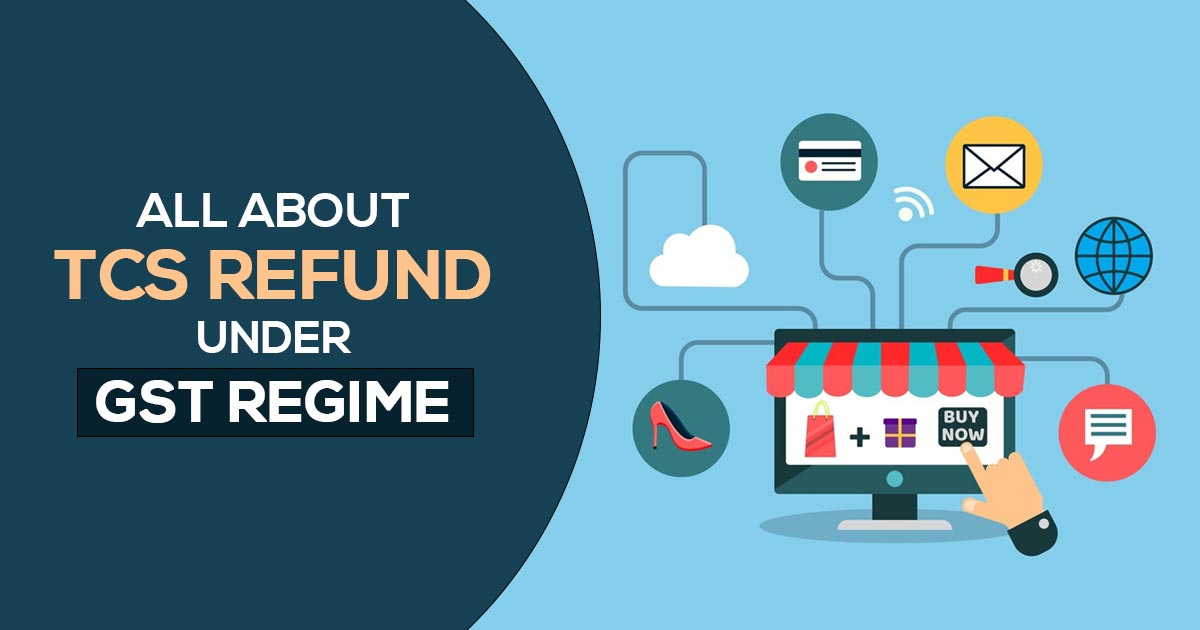
Overview of TCS Refund Under GST
The Goods and Services Tax (GST) system in India has undergone several revisions aimed at simplifying taxation and fostering economic growth. One notable change that has garnered considerable attention, particularly in the e-commerce sector, is the implementation of the Tax Collection at Source (TCS) provision. This article explores the intricate implications of TCS refunds under GST and their extensive impact on various businesses, with a focus on e-commerce.
Understanding TCS in the GST Framework
TCS, or Tax Collected at Source, is a mechanism wherein the buyer deducts a specific percentage of tax at the source of the payment to the seller. The deducted tax is then directly deposited with the government on behalf of the seller.
According to Indian GST legislation, e-commerce companies must levy 0.5% CGST and 0.5% SGST. For interstate transactions, they collect 1% IGST on the net value of taxable supply facilitated through their platforms.
Eligibility for TCS Refund Under GST
To qualify for a GST refund in the context of Tax Collected at Source (TCS), a seller needs to fulfil certain conditions. These include being registered under GST, having submitted required GST returns (Forms GSTR 1 and GSTR 3B), having an excess of TCS credited to their ECL, and refraining from utilising the TCS amount for any other tax obligations. The eligibility criteria for TCS refund encompass over 10 lakh registered taxpayers.
Rate of TCS under GST
The applicable GST TCS rate is subject to variation, depending on the transaction type and the seller’s turnover in the previous financial year.
For e-commerce, the relevant rate is 1% (0.5% CGST + 0.5% SGST) on the gross consideration value for providers having a turnover of more than Rs. 50 lakh in the previous fiscal year.
For extra supplies, the appropriate rate is 5% (2.5% CGST + 2.5% SGST) of the gross payment value for specific transactions defined in the GST statute.
Major points and Acknowledgement
- Vendors with a turnover of less than Rs. 50 lakh in the preceding financial year is not obligated to bear TCS’s responsibility for e-commerce transactions.
- The government has the authority to modify the TCS rate for both e-commerce and other transactions by issuing notifications.
- The TCS rate applies to the total payment value, encompassing the GST amount payable on the supply.
TCS Concept for E-commerce Companies
The role of TCS in the realm of e-commerce holds significant importance in facilitating tax collection within the GST framework in India.
The objectives of TCS for e-commerce companies are manifold:
- Tax Evasion: TCS serves as a preventive measure against tax evasion by ensuring the upfront collection of taxes from sellers on e-commerce platforms.
- Streamlining tax compliance: E-commerce platforms contribute to simplifying the tax compliance process for both sellers and the government. They achieve this by deducting and depositing taxes directly with the government on behalf of the sellers.
- Boosting tax revenue: The upfront collection of taxes through TCS ensures a consistent influx of tax revenue for the government. This, in turn, supports fiscal stability and facilitates the execution of various development initiatives.
TCS Functioning for E-commerce Companies
- Revenue Collection: E-commerce platforms deduct a particular percentage of tax (currently 1%) from the total sale price as well as GST if the purchaser finishes a purchase.
- Remitting the Accumulated Tax Amount: For depositing the collected TCS amount with the government on behalf of the seller typically on a monthly or quarterly grounds the platform is liable.
- Influence on Merchants: Although the initial deduction may appear inconvenient, sellers can recover the TCS amount by claiming it as a tax credit when filing their GST returns. This ensures that the overall tax burden remains unchanged.
Closure
For businesses that are functioning in the dynamic e-commerce sector and beyond, the initiation of TCS refund under the GST is a positive development. It represents an effective mechanism that addresses concerns related to cash flow, competitiveness, and compliance, thereby cultivating a more favourable business environment. While challenges persist, proactive government measures combined with heightened awareness in the business community can facilitate the smooth implementation of TCS refund provisions.
The introduction of TCS for e-commerce companies emerges as a mutually beneficial arrangement for both the government and the platforms. It ensures the timely collection of taxes, streamlines compliance processes, and supports a thriving e-commerce ecosystem.
Read Also: Easy Filing Guide to GSTR 8 Form Online for TCS Collector
With the ongoing evolution of the GST framework, businesses must remain well-informed and adaptable to navigate the intricate landscape of taxation in India. TCS refund provisions play a pivotal role in fostering a business-friendly environment, contributing to the growth and prosperity of the Indian business landscape.